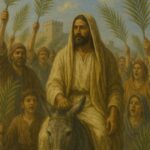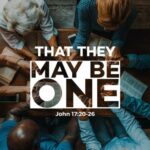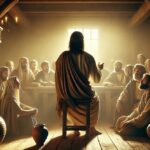
Easter is the most significant celebration in the Christian faith because it commemorates the resurrection of Jesus Christ from the dead. It is the cornerstone of Christian hope, affirming that sin has been defeated, death has lost its sting, and eternal life is available to all who believe. Through the resurrection, God’s power, love, and redemptive plan are fully revealed, making Easter not only a historical event but a living promise of new life for every believer.
The Message
Luke 24:1
“On the first day of the week, very early in the morning, the women took the spices they had prepared and went to the tomb.”
Analysis: This verse sets the scene. The women came to anoint Jesus’ body, showing devotion and expecting to find Him still dead. This highlights their grief and the fact that even His closest followers didn’t anticipate the resurrection.
Cross-References:
- Mark 16:1–2 – “When the Sabbath was over, Mary Magdalene, Mary the mother of James, and Salome bought spices… very early on the first day of the week…”
- Matthew 28:1 – “After the Sabbath, at dawn on the first day of the week…”
- Luke 23:56 – “Then they went home and prepared spices and perfumes. But they rested on the Sabbath in obedience to the commandment.”
Luke 24:2
“They found the stone rolled away from the tomb,”
Analysis: The stone, which sealed the tomb, had been miraculously moved. This emphasizes divine intervention and the fact that the resurrection had already occurred by the time they arrived.
Cross-References:
- Matthew 28:2 – “There was a violent earthquake, for an angel of the Lord came down… and rolled back the stone…”
- Mark 16:4 – “But when they looked up, they saw that the stone, which was very large, had been rolled away.”
- John 20:1 – “…saw that the stone had been removed from the entrance.”
Luke 24:3
“but when they entered, they did not find the body of the Lord Jesus.”
Analysis: This is the moment of confusion and astonishment. The missing body is the first evidence of the resurrection. The empty tomb is a historical and theological anchor of Christian faith.
Cross-References:
- John 20:2 – “They have taken the Lord out of the tomb, and we don’t know where they have put him!”
- Mark 16:5–6 – “You are looking for Jesus… He has risen! He is not here.”
- Acts 2:31 – (Peter speaking of David) “Seeing what was to come, he spoke of the resurrection… that his body did not see decay.”
Luke 24:4
“While they were wondering about this, suddenly two men in clothes that gleamed like lightning stood beside them.”
Analysis: The women were puzzled, and in their moment of confusion, divine messengers appear. The “gleaming clothes” signify angelic beings, commonly associated with God’s glory.
Cross-References:
- Matthew 28:3 – “His appearance was like lightning, and his clothes were white as snow.”
- John 20:12 – “…saw two angels in white, seated where Jesus’ body had been…”
- Acts 1:10 – “…two men dressed in white stood beside them.”
Luke 24:5
“In their fright the women bowed down with their faces to the ground, but the men said to them, ‘Why do you look for the living among the dead?’”
Analysis: Their reaction—fear and reverence—matches common biblical responses to angelic encounters. The angels’ question is rhetorical and powerful: Jesus, the source of life, is no longer in a place of death.
Cross-References:
- Matthew 28:5 – “Do not be afraid, for I know that you are looking for Jesus, who was crucified.”
- Hebrews 1:14 – “Are not all angels ministering spirits sent to serve those who will inherit salvation?”
- Romans 6:9 – “…Christ was raised from the dead, he cannot die again; death no longer has mastery over him.”
Luke 24:6
“He is not here; he has risen! Remember how he told you, while he was still with you in Galilee:”
Analysis: The declaration “He is not here; he has risen!” is the heart of the gospel message. The angels remind the women that Jesus had foretold this event, validating His words and divine plan.
Cross-References:
- Luke 9:22 – “The Son of Man must suffer many things… and on the third day be raised to life.”
- Mark 8:31 – “He then began to teach them that the Son of Man must suffer… and rise again.”
- Luke 18:33 – “On the third day he will rise again.”
Three foundational truths:
1. Victory Over Sin and Death
- The resurrection proves that Jesus defeated the power of sin and death. Without it, the cross would just be a tragedy.
- Scripture: “But Christ has indeed been raised from the dead, the firstfruits of those who have fallen asleep.” – 1 Corinthians 15:20 “Death has been swallowed up in victory.” – 1 Corinthians 15:54
2. Assurance of Eternal Life
- The resurrection is the believer’s guarantee that death is not the end. It offers unshakable hope for life beyond the grave.
- Scripture: “Because I live, you also will live.” – John 14:19 “He has given us new birth into a living hope through the resurrection of Jesus Christ from the dead.” – 1 Peter 1:3
3. Validation of Jesus’ Identity and Mission
- The resurrection confirms Jesus is the Son of God, the promised Messiah, and that everything He said is true and trustworthy.
- Scripture: “…declared to be the Son of God in power according to the Spirit of holiness by his resurrection from the dead…” – Romans 1:4 “If Christ has not been raised, your faith is futile; you are still in your sins.” – 1 Corinthians 15:17
These three truths form the core of Christian belief and are the reason the resurrection is celebrated as the single greatest event in history.
Therefore:
- Romans 6:4: “We were therefore buried with Him through baptism into death in order that, just as Christ was raised from the dead through the glory of the Father, we too may live a new life.”
- Colossians 2:12: “Having been buried with Him in baptism, in which you were also raised with Him through your faith in the working of God, who raised Him from the dead.”
- Galatians 2:20: “I have been crucified with Christ and I no longer live, but Christ lives in me.”
- 2 Corinthians 5:17: “Therefore, if anyone is in Christ, the new creation has come: The old has gone, the new is here!”
- Romans 10:9-10 NIV If you declare with your mouth, “Jesus is Lord,” and believe in your heart that God raised him from the dead, you will be saved. For it is with your heart that you believe and are justified, and it is with your mouth that you profess your faith and are saved.








